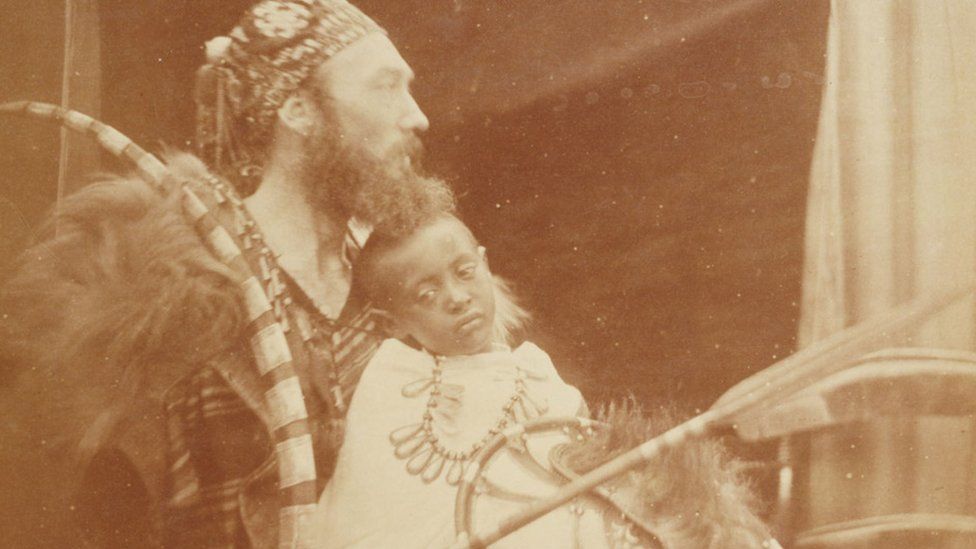-

-
-
Loading

Loading

A lock of hair belonging to a young prince from Ethiopia, who died 140 years ago, has been handed over to representatives from his home country in the UK. The prince, named Alemayehu, was taken by British soldiers in 1868 after they invaded his father's fortress. Emperor Tewodros II, his father, subsequently took his own life. Alemayehu had a miserable upbringing in Britain and passed away at the age of 18 in 1879. He was buried at Windsor Castle near London, and recent requests to return his body to Ethiopia have been denied. However, the handing over of the prince's hair has raised hopes that his body may eventually be repatriated. The hair was given to Ethiopia's ambassador to the UK at a ceremony in London, along with other looted artifacts from Emperor Tewodros's Maqdala fortress. The ambassador expressed gratitude for the return of these items and emphasized the need for the UK to return more seized artifacts. Alemayehu was taken to London when he was just seven years old, and his orphan status garnered sympathy from Queen Victoria. She supported him financially and placed him under the care of Captain Tristram Charles Sawyer Speedy, who had accompanied him from Ethiopia. The Scheherazade Foundation, responsible for facilitating the return of the hair, revealed that the artifact had initially been in Captain Speedy's possession. A descendant of Speedy handed over the lock of hair, stating that it felt out of place in her family heirlooms. Alula Pankhurst, a member of Ethiopia's Heritages Restitution National Committee, welcomed the return of the hair but insisted that more should be done. He highlighted the importance of returning the Ethiopian artifacts looted during the 1868 British expedition to Magdala as a means of restorative justice and enhancing relations between the two countries. Despite calls for the return of the prince's body, Buckingham Palace has rejected this request, citing disturbance to others buried in the catacombs of St George's Chapel at Windsor Castle.